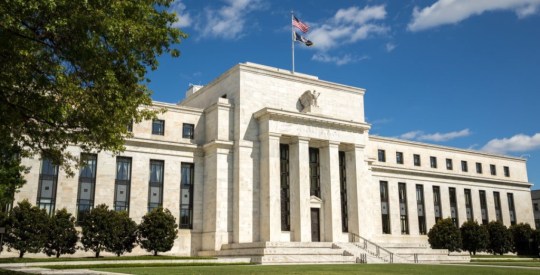
Following the murder of George Floyd in 2020, PeerStreet CEO Brew Johnson knew his real estate investing platform needed to get involved with forwarding social change. That led to the launch of PeerStreet’s “Evolving Neighborhood Uplift Fund,” a charitable initiative used for a more purposeful and sustainable way to invest in real estate entrepreneurs from underserved communities.
The E.N.U.F. advisory board reviews and selects ten entrepreneurs who best meet eligibility requirements, including demonstrating a passion for real estate investing and community improvement, while identifying as a member of a minority group and of an underserved community.
According to PeerStreet, the mission of the new initiative is “to equip aspiring real estate entrepreneurs with the tools and capital they need to invest in real estate projects and, in doing so, invest in their communities.” Once candidates are accepted to the E.N.U.F. project, they will receive mentorship from PeerStreet’s network of real estate experts, matching with people like Jason Lewis, who is the CEO and founder of AryMing Capital. In addition, when they identify qualifying projects, the capital needed will be funded out of a charitable giving vehicle, hosted by the Tides Foundation.
Cheta Ozougwu, an investor at Tidal Loans and one of the mentors in the program, said, “With the disparity in resources and knowledge available to Black investors, it is truly a blessing that PeerStreet co-founder and CEO
Brew Johnson is so passionate about this cause. Tidal Loans shares that passion.”
“Tidal Loans’ main goal in its involvement with E.N.U.F is to be a part of a program that inspires and enables our next generation of Black real estate investors,” said Ozougwu. Ozougwu is just one of a handful of mentors and advisors with different areas of expertise who are partnering with the initiative to help others create wealth.
Building wealth through real estate
“We are passionate about democratizing the ability to create wealth through real estate,” Johnson said. “The social unrest that unfolded following the murder of George Floyd really underscored the unequal playing field, the disparity in wealth and the lack of investment in black communities – which are huge factors in the racial inequities we see today.” The economic statistics are shocking, as Johnson pointed out: white communities receive four times the investment that black communities do, he said, and the average white household has 10 times the wealth of the average Black household.
And, the Federal Reserve reported in August that the average homeowner in 2016 had a household wealth of $231,400, compared to the average renter having a household wealth of just $5,200. Fast forward to a February study by the United States Census Bureau that shows similar data around inequality. The homeownership rate for white Americans in the fourth quarter of 2020 was 74.5% – a nine-year high, and surpassing the fourth quarter of 2019’s rate of 73.7%. Homeownership rates for Black Americans dipped to 44.1%, the lowest rate since the first quarter of 2020.
Even considering American cities with larger Black populations, the homeownership gaps are alarming. Washington, D.C. and Los Angeles, for instance, show a gap of 25% between white and Black homeownership. Or, to boil everything down: the homeownership gap between white and Black Americans is larger today than it was 50 years ago. And that’s with mortgage rates falling to historic lows amid the COVID-19 pandemic. With rates expected to return to semi-normal and home prices still high, homeownership could continue to be a problem for Black Americans.
Creating the idea for E.N.U.F
As Johnson watched the raw emotions of the Floyd case spill over on the news, he felt helpless. In response, he gathered his team in June and brainstormed ideas that would help make a difference. The idea for E.N.U.F., he
said, was born. “After we thought about the wealth gap problem in the context of our business and our goals of creating a level playing field, unlocking a reinforcing cycle of wealth creation, and community investment, it became apparent that we didn’t need to wait around for someone else to make a change,” he said.
When individuals invest in loans on PeerStreet, the capital is distributed through a network of small business lenders to real estate entrepreneurs around the country. Those entrepreneurs then use that money to buy properties, fix them up, then rent them out or sell them to homebuyers. To date, PeerStreet has allocated approximately $4 billion of capital to real estate entrepreneurs around the country. “In a way, we’ve created a wealth-generating machine,” Johnson said. “At the same time, there is a massive wealth gap in America and the numbers are just shocking.”
President Joe Biden has been a proponent of affordable housing since he launched his presidential campaign, and his American Rescue Plan – currently earmarked at $1.7 trillion for the economy – includes $100 billion for affordable housing and a $15,000 first-time homebuyers tax credit that can be used as a down payment.
In the meantime, Johnson said PeerStreet is doing what it can with the resources it has – without waiting for the government. “We love to see government support and think housing for everyone is important,” he said. “But I don’t think anyone should wait for the government or someone else to fix things or make a change. We believe that we have the power, collectively, to make an impact and create a better future. That’s what drives our mission at PeerStreet, and the E.N.U.F. program is a natural extension of that mission.”
The goal with E.N.U.F., Johnson said, is to reverse the negative flywheel minority families are caught up in. Because Black families on average have fewer assets it’s harder for them to access capital to start creating wealth. “When investors buy loans from PeerStreet, they earn interest on their investment which is great, but the ecosystem that investment supports is even more important – their invested capital gets allocated to small businesses and real estate entrepreneurs,” Johnson said.
“I know first-hand that real estate is a powerful economic driver to accomplish this goal and helping others to be able to grow wealth through real estate is very exciting,” added Ashley Flucas, general partner of Flucas Ventures and a founding advisor to the E.N.U.F. project.
This article was pulled from the HousingWire Magazine April issue. To read the the rest of the issue, go here.




